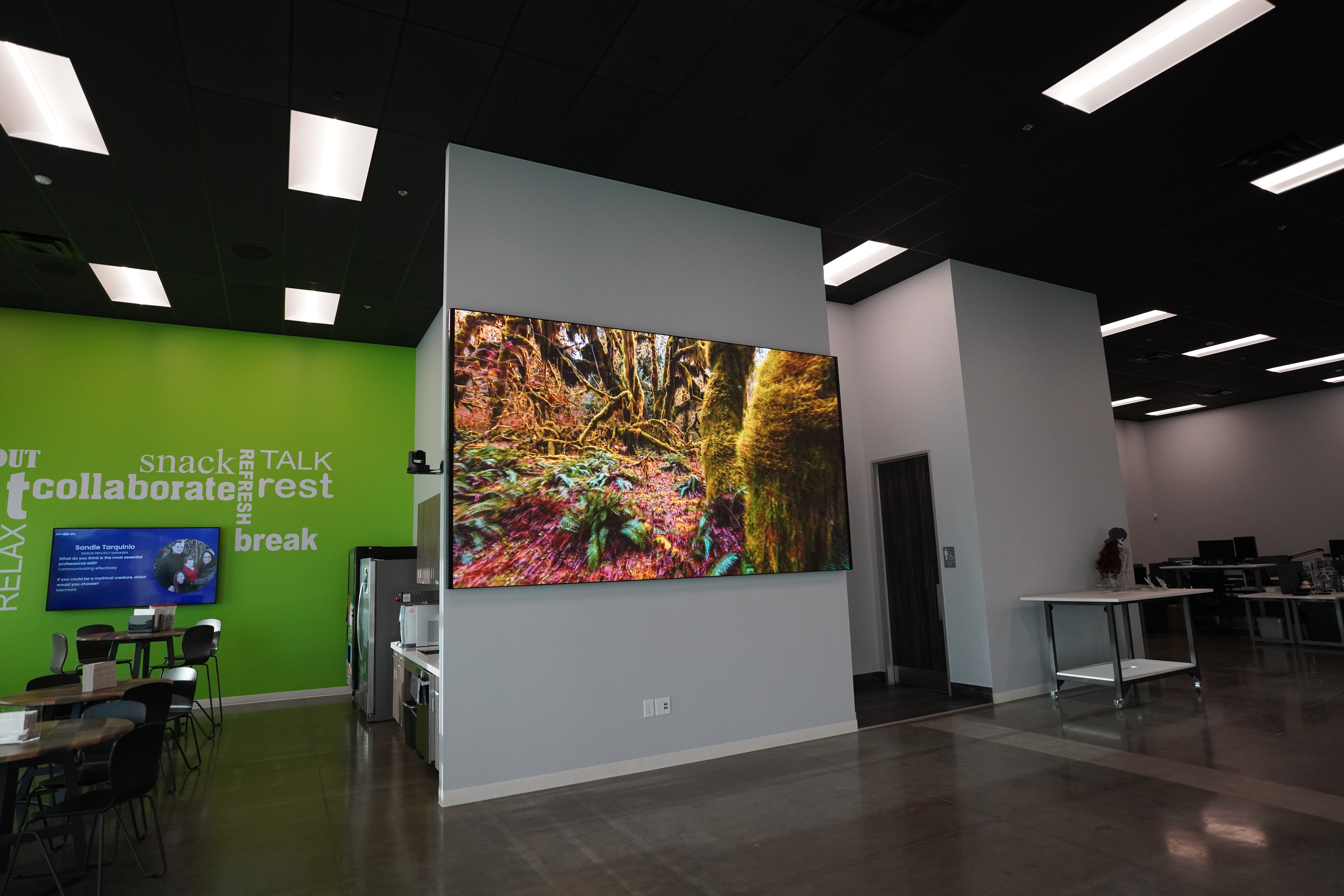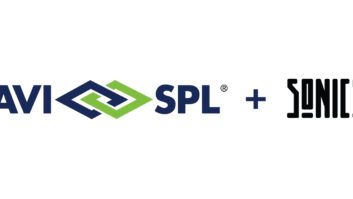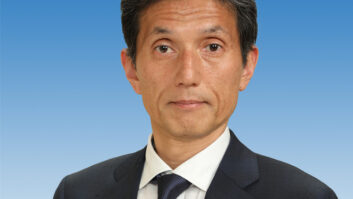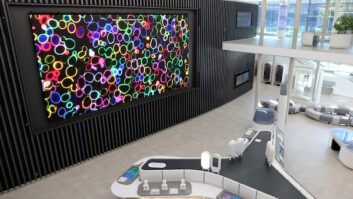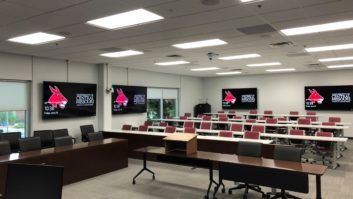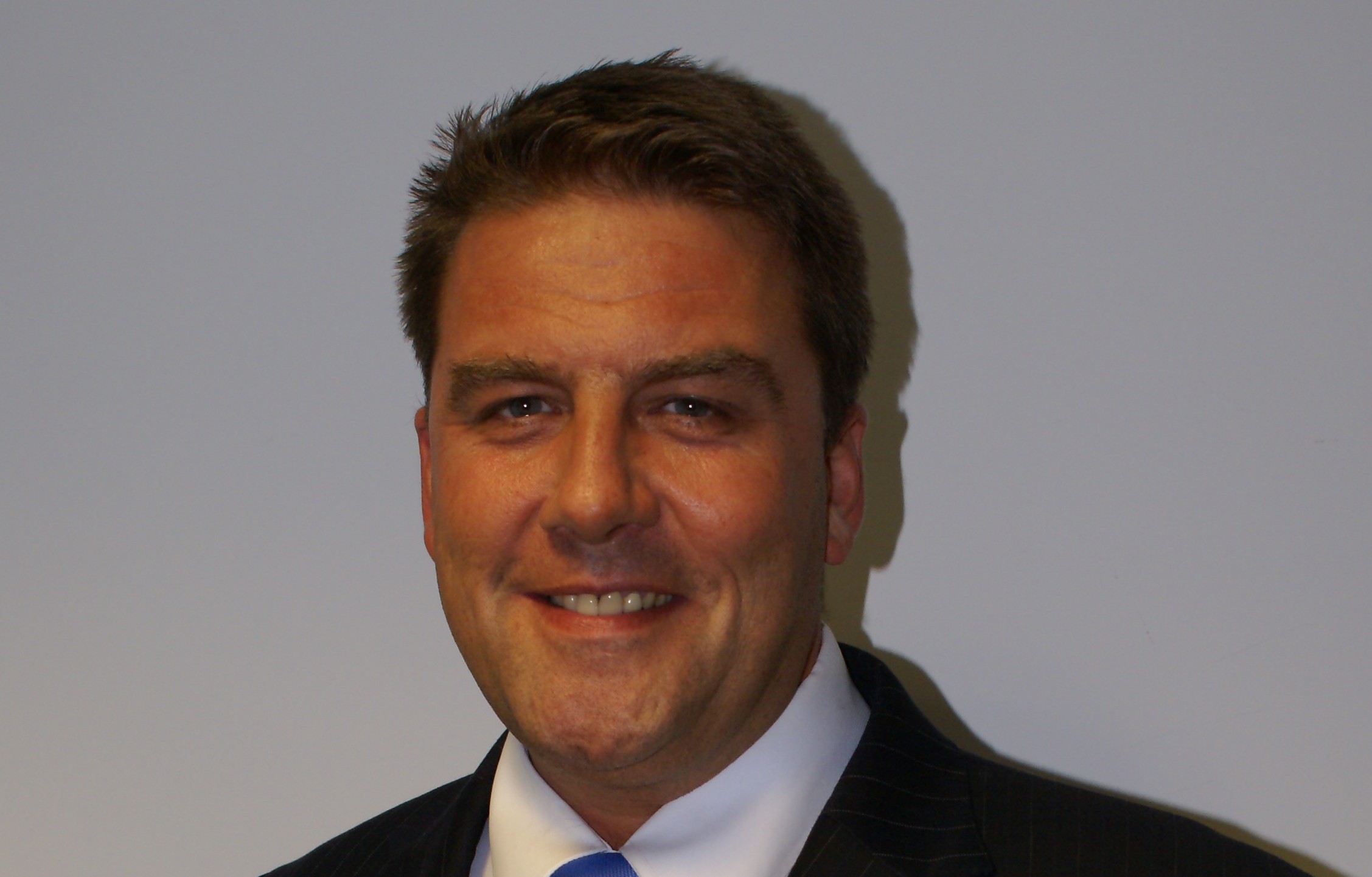
The EMEA managing director of the world’s largest integrator talks to Paddy Baker about bringing the company to Europe, how AVI-SPL differentiates itself, and future directions for the industry.
Since integrator AVI-SPL set up on this side of the Atlantic on 31 January 2013, the company has quadrupled in size: it started with 15 employees, and now has nearly 60. Not everyone expected this level of success, though. “We’ve had to go out and prove ourselves as a team, with a higher level of quality. When we first arrived, people questioned our viability and longevity,” comments managing director James Shanks. “But we’ve proved over 20 months that we’re here to stay, and we’re here to improve the market overall.”
A 20-year veteran of the industry, Shanks had previously spent a dozen years in the MD’s chair at two UK integrators (one of which was the UK operation of a US-owned business). “Then the opportunity arose with AVI-SPL – they needed someone who knew how to run a business. And they recognised that it was a different industry over here compared with America.”
AVI-SPL – “technically the largest audiovisual integration company and video solutions provider in the world”, as he puts it – was formed by a merger of the US’s two largest integrators in 2008. The company then expanded into Canada and Mexico – and decided that a move into Europe, where it had previously been using a partner network, was the logical next step. The company had a large number of clients in the Fortune 100 list – about 86% at the time – and was receiving a number of requests to deliver its service internationally. “When you use your partner network, quality is not always assured, communications are less controllable and more difficult to orchestrate. Direct representation helps us remove that risk in Europe, and that is why we are so stringent with our choice of partners where we are not locally represented,” he explains.
European gateway
As is often the case with US companies moving into Europe, the UK was the preferred gateway to the continent – as well as providing a base to serve corporate clients in the City of London.
He describes the establishment of AVI-SPL’s UK operation as “an educated risk” – “being able to rationalise the levels of business that were being passed out through the partner network, the company was able to offset that against any potential investment that was initially going to be required.”
Assembling the UK team, “we said to ourselves, let’s not repeat the mistakes we’ve seen throughout the audiovisual industry in the past 20 years”. Such as? “The final 5% of any project is always the hardest to deliver. Using the experience and lessons learned by our team members we have applied a methodology and approach that ensures every project is completed 100% following procedures – rather than the level of project you get being determined by the level of involvement of the business ownership.”
He warms to the theme: “AVI-SPL is a corporate AV business – not a locally owned, or mom-and-pop, or lifestyle business. As a direct result, we make sure there is involvement in every project from all facets of our business.” A client working with a UK competitor, he says, may at some point be working with a sub-contract installation team, with no direct representation from the business that the client has procured the services from. “One of the commitments we made was that we would endeavour to make sure that there would be direct representation in the field by a directly employed individual from this business on every project that we do – whether or not we were using sub-contracted capability to supplement our services. That gives us a better degree of control, insight and visibility into what we are delivering to end users.”
On a related note, the company has implemented a “playbook” of practices that is the culmination of over 20 years of knowledge and experience. “It’s detailed in a manner whereby, if a client says to the London office, ‘How would you deliver this project?’, they get the same answer they would get from the San Francisco office.” This covers not just standardisation of the technical solution, but also of the company’s delivery capability, he points out.
Growing the market
Does he believe that AVI-SPL entering the UK has grown the market? It’s a difficult question to answer, he says, but he believes that the company’s approach has enabled it to increase the volume of UK and European deployments. “By acting as an extension to our international enterprise clients, we have helped facilitate and communicate what we call enterprise global standards. So if an office in the UK had a perceived audiovisual requirement, and they satisfied it in the way the local AV suppliers would normally have facilitated, that would have led to a certain level of investment. By being able to communicate clearly the recognised and established enterprise standards, which are already being rolled out across North America, into the European arms of those businesses, we have come across scenarios where we have generated greater local demand from those enterprise clients to facilitate global saving strategies.”
He describes AVI-SPL’s establishment in the UK as “a greenfield site”, rather than a “phoenix situation” (reviving a failed company from the ashes – “I would strongly recommend that isn’t a way to go at all”). This fresh-start approach, he says, required laying down “very strong foundations” to ensure success. “We’ve been able to bring together key individuals who were each recognised as being of a strong calibre and capability in their previous roles, and being able to bring them together so that the whole is greater than the sum of the parts.” Eighteen months or so into that two-year plan, the company is “benefitting from that foundation”.
So logically, the next step would be to establish a footprint in mainland Europe? Yes, he says, but continues: “Given the current macroeconomic conditions throughout Europe, we’re holding this in view for a few months longer, but it will be part of the formulation of the plan from 2015 going forward. I would expect it to be a greenfield site opportunity, which requires more thought and planning than simply picking up the next business that becomes available.”
The UK office’s success to date can be gauged not only from the rapid growth in its staff numbers, but also from its project referral numbers. He explains: “Last year, 60% of our business was in mainland Europe with enterprise clients, and 70% of our business was the low-hanging fruit of mature relationships with our US client based. This year, we’ve had more local traction, and the UK-generated work has flipped those numbers on their head: 60% of our work is in the UK, and 70% of our work has been locally generated rather than being referred from the US.”
Corporate moves
He sees further consolidation – and corporatisation – of the integration market as inevitable. “We will see the industry taking further steps away from being the biggest cottage industry in the UK,” he says. “We’ve seen audiovisual companies in the UK like AVMI and Pro AV join ourselves in taking steps to become a corporate delivery method rather than a family-run lifestyle business. I believe this approach will help raise the game of the industry, and AVI-SPL coming to Europe will accelerate that process.”
The UK, he believes, is further down this road than other European countries, such as Germany, where there are still a large number of small family-run integrators. “There are over 500 German audiovisual companies, but how many are doing more than €20 million of business a year? Probably less than 30. If you go back 10 or 15 years in the UK, it was a similar situation.”
It’s not only the integrators that need to change: many of the biggest manufacturers, he says, also need to raise their game to supply the global AV market. “If you try and use their global fulfilment programmes, they still face challenges in how to deal in the Asia-Pacific region, and they all still deal regionally rather than globally. In my experience one of the few companies that you can actually deal with on a global basis is NEC.”
Shanks believes that the rate of advancement of AV technology has slowed, and this is not necessarily a bad thing. “Technology is advancing, but not to the exponential degree that we experienced in 2000-2010, where we saw some truly fundamental changes, with the rise of flatpanel technology, and with the likes of Crestron developing digital platforms, and so on… Over the last two years there has been an element of stabilisation in the technology being deployed in the corporate environment, so companies involved in the industry have been able to concentrate on deliverability and methodology rather than on radically changing technology.”
Inevitably, our discussion moves to the world of IT networks. “You’ve got to remember – not only did we bring an AV integration company to the market, we brought our Symphony managed services platform. That’s been further developed since our arrival so it’s not only a VNOC , it’s an AVNOC – which gives us the ability to monitor any IP-addressable piece of hardware across the network, not just video units. That’s a working, proven platform that we are able to deploy on a global scale.”
He also has a take on AV-IT convergence that I haven’t heard before: “This was probably two years ago, but I heard someone giving a talk where he said the question was still being asked about whether AV and IT were coming together or were still in separate camps. His message was: ‘What you’ve got to understand is AV and IT have been married for years – we’re now in counselling. We’re just trying to work out the rough edges.’ I wish I could give his name and credit for this, I thought that was a fantastic analogy.”
So, what gets James Shanks out of bed in the morning? “I truly love what I do,” he immediately replies. “It’s different from running a lifestyle business. Seeing the team develop, seeing people exceed their own expectations of themselves and the team – I see that every day here.” []
